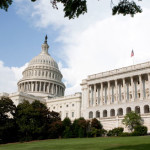Seniors, travelers, the poor – and, of course, Oklahoma’s 48,000 federal employees – will likely be among the first to feel the government shutdown threatened by Congress’ inability to agree on a budget resolution, those who have looked at previous such events say.
“All of these (effects of a shutdown) seem like inconveniences,” said Oklahoma State University political science professor Brandon Lenoir, “and they would be inconveniences, (except) if the impasse lasts for weeks it becomes an effect … on livelihoods.”
The exact impact is difficult to predict because “shutdown,” in this case, does not really mean shutdown. Only a little more than one-third of federal spending is on the table. Essential functions, ranging from military operations to Social Security payments, will continue whether Republicans and Democrats reach an agreement by Monday night or not.
But the stakes are still high. About 28 percent of Oklahoma’s state spending comes from the federal government, and much of that would be cut off by a shutdown.
Municipal governments also depend on federal money for many of their programs.
“If it goes more than a few days, it’s going to be a problem,” said Glen Kurtz, a University of Oklahoma political science professor. “The states and localities can’t run deficits.
“Roughly a quarter of state revenues nationwide are from the federal government,” said Kurtz. “Roughly one-third of funding from urban programs are from the federal government. Many health programs would be affected. Many environmental programs. Grant programs.”
There have been 17 federal government “shutdowns” since 1976, ranging from a single day on several occasions to three weeks from Dec. 16, 1995, to Jan. 6, 1996.
That shutdown resulted in furloughs for 800,000 federal employees. Although the federal government has about the same number of workers now as it did then, about 1.2 million are expected to be furloughed this time. That’s because budget bills for a few areas of government, including the Defense Department, were passed before the 1995-96 shutdown.
No budget bills are even close to consideration this time.
If a shutdown occurs, it is expected that Social Security and federal disability payments would continue, but new applications could not be processed. Social Security offices would close and government hotlines would go unanswered.
Most veterans benefits would continue, but VA offices would be shuttered.
Military personnel would continue working, but some civilian employees might be sent home.
National parks, museums and monuments would close and the Environmental Protection Agency would shut down.
The U.S. Postal Service, which is largely self-funded, will continue virtually unscathed.
Passport, visa and federal licensing applications would not be processed and background checks for gun purchases would probably cease.
Many social programs will begin running out of money, including Supplemental Nutrition Assistance (SNAP), Temporary Assistance for Needy Families (TANF), Women, Children and Infants (WIC) and school nutrition.
Federal reimbursements to states and local governments will stop, which could affect programs such as unemployment insurance.
Perhaps the biggest impact, though, will be that paychecks for 2 million federal employees, even those still working, will stop. Even military personnel are likely to see delays.
Some or all will be paid eventually, but a long-term shutdown could have significant economic consequences.
“Our economy is trying to recover,” said Lenoir. “You take a large percentage of the population and tell them to stay home, you take another swath of the population that relies on government services that’s money that’s not being put back into the economy.”
Lenoir notes that Congress’ approval rating has steadily declined since the first shutdown in the 1970s, and is now at or near the all-time low.
“There are communicable diseases more popular than Congress,” Lenoir said.
“Playing brinkmanship at this level, to where it is going to … potentially have a ripple effect economically for years to come, it’s hard to say this is going to instill confidence in the government.”
Presidents, said Lenoir, tend to get the best of fights with Congress.
“The political environment is different today than it was in 1996. The political pendulum has definitely swung more conservative. But when there have been standoffs … presidents usually fare better than Congress when it comes to the blame game.”




The problem is that the USA is heading on a path similar to that European countries have traveled. when you place to many services and people on government funding you eventually run out. Congress needs to realistically get back to producing a budget. Senate Democrats have yet to publish one let alone pass one. Continuing resolutions to fund government without realistically looking and evaluating where present day dollars are being spent is the definition of insanity.